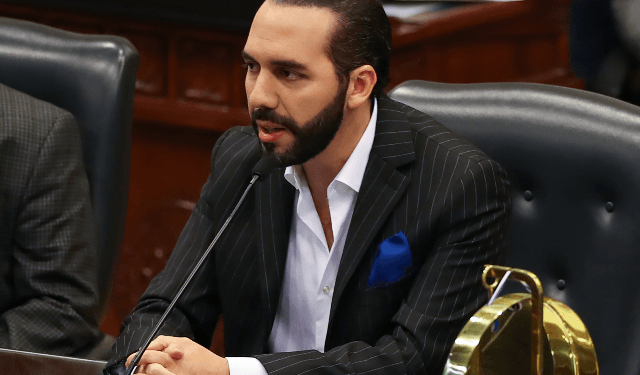El Salvador made a major milestone in the cryptocurrency space the other day by becoming the very first country to adopt bitcoin as a legal tender. The decision was not just a way of increasing the country’s investments and economic development but also promoting innovation and financial inclusion.
With cryptocurrencies rallying over the past year, they have become more attractive to developing countries. These countries do not have complex financial systems to make seamless payments and manage currencies effectively. The issue of inflation is that some of these countries are also high; hence cryptocurrencies act as a hedge against inflation. Now that El Salvador set the trend in motion, everyone’s eyeing who is next.
El Salvador Enlightens Countries to Look Into BTC
Since El Salvador President Bukele announced bitcoin adoption, other countries have started giving their opinion on whether they will follow the same path.
Paraguay
This nation has often announced its intention to build an alliance of financial integration with South America’s other countries, and Bitcoin looks to be high on the government’s agenda.
The country’s land-locked property makes it creep in in the shadow of its wealthier neighbors, and Bitcoin is a chance to step out of those shadows.
So far, the country has warmed up to cryptocurrency such that projects are ongoing regarding the same. Universidad Americana will start accepting cryptos as fee payment in August according to Camilo Jiménez Agüero. The university hosts 17,000 students, with 60% studying virtually. As of now, they plan on accepting Bitcoin, XRP, and Ether.
Paraguayan congressman Carlos Rejala, a millennial politician like Salvadoran President Nayib Bukele, has become a pretty obvious supporter of Bitcoin and even adds to his social media accounts a popular “laser eyes” filter that shows support for the cryptocurrency.
Rejala hopes next month to pass a bill that draws cryptocurrency companies to its country with a population similar to London. Another bill that would make bitcoin could pass a legal tender if that bill passes.
Venezuela
In a 2020 Chainalysis report, Venezuela was listed as the third country with the most crypto adoption. The country came into the limelight when it launched its cryptocurrency in 2018.
Petromoneda had been promoted as the answer to all the nation’s money challenges, but, as many commentators at the time predicted, it never truly lived up to expectations.
On paper, Venezuela might as well be one of the richest countries on the globe. The world’s envy would be on its riches and oil reserves had it not been all managed so horribly.
The dollar now constitutes the country’s most used retail currency, with 67 percent of sales paid with dollars, according to a study by Ecoanalitica, a local company. On the other hand, crypto activity lies as an opportunity to preserve (and even gain) part of its buying power among a large proportion of Venezuelans.
It would be Venezuela if any country were ready to shift to Bitcoin’s legal tender territory. Some government effort may swiftly push it over the line.
Panama
Next month, Panamanian Congressman Gabriel Silva, aims to submit a law that might lead to a legal tender for cryptos and establish tax incentives for the companies dealing with cryptocurrencies.
Panama, which makes it an economically significant link between South and Central America, has always punched well above its weight. Silva and his team will be gathering views from various parties this month, including lawyers, bitcoin users, crypto-related enterprises, and government authorities.
Yes, El Salvador took a bold step, but if Panama became the next Bitcoin nation, the world would pay attention.
Brazil
Brazil stands out as innovative, although it is rich in history and culture. It has a strong business community, and the government has strong support for its crypto and blockchain conferences and summits.
The country has expressed its wish to establish a national cryptocurrency. Nonetheless, Brasilia officials have said that they want to be in the ‘Bitcoin conglomerate’ covering South America. However, regulators have not yet caught up. The crypto sector in Brazil seems mainly uncontrolled, except for some tax regulations.
As of now, bill drafts are among the rumors making rounds in the state. Government officials could bring these bills to the government before the end of 2021.
Nicaragua
Many politicians have already blown their horns in this little Central American republic in favor of El Salvador.
Numerous analysts remain astonished that Managua had not earlier revealed its plans to tender Bitcoin for legal money. But it could be the spark Nicaragua needs now that its neighbors have crossed the line.
Given the historically niggly relationship between the two nations, it could be enough to quench the appetite of Nicaragua.
Following El Salvador: Making Bitcoin a Legal Tender
So, what is the deal about making Bitcoin a legal tender anyway?
Bitcoin U.S. tax treatment makes cryptocurrencies difficult to utilize for daily payments. In 2014, the Internal Revenue Service designated cryptocurrencies as property for Federal income tax purposes. It implies when you bought one BTC five years ago and decided to spend it, you trigger a taxable event to report capital gains.
However, if you convert foreign currencies like euros to the U.S. dollar, the IRS does not require you to pay capital gain tax.
Meanwhile, we can expect more countries to state their view on making Bitcoin a legal tender. By the end of the year, more countries will probably follow in El Salvador’s footsteps. The boat has been set to motion!























